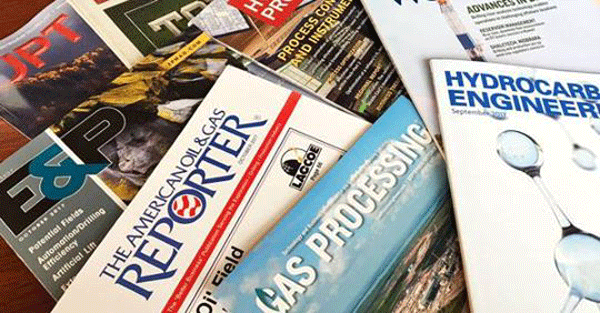By Anna Scordos-Brooke and Beau Robinson, PR Experts
Writing is not just an activity, it’s an art. However, for most people, it can be a challenging art to master. At Foster Marketing, we take your successfully completed groundbreaking project, innovative new technology or strategic new hire and effectively communicate the news to the global oil and gas industry.
However, an article doesn’t write itself. Once we have our hands on all the relevant information, actually writing compelling text requires self-discipline and an acute ability to separate important vs. frivolous details. This takes time, thought and above all, experience.
Here are a few secrets, accumulated from years of experience that can help craft a dull, unorganized and uninformative piece into a valuable technical industry resource. Following are basics to improve your writing!
Pre-planning
The foundations for writing a good article are laid before you even open a Word document.
Know Your Audience: First you need to make sure you know “what” you are writing about, “who” you are writing for and “why.” For your target audience to engage with your message, you must keep them in mind while writing every single word. Never forget “why” you wanted to communicate with them in the first place.
Gather the Information: Before you write, make sure you have all of the relevant information you need. This will prevent you from having to go back and forth to gather more. It’s okay to have blanks to fill in at a later date, but make sure all of the key ideas are in place, ready to build upon. One thing you do not want to lose when you start writing is your “creative flow.”
Create an Outline: Creating an outline is the best way to organize your ideas, including the main idea, subtitles and the body of your article. By creating an outline, you can have the foundation of your article finished before you begin the hard work of putting the words into sentences and the sentences into paragraphs.
Less is More …
… Especially when you have a word count to adhere to. It is important to eliminate any ideas or unnecessary words that do not add value to the article. Don’t force your readers to sift through a sea of words to find the important information – your main points should stand out.
Vary Sentence Structure: Paragraphs that do not flow well are hard to read. Vary your sentence structure with a variety of simple and complex sentences, so the text does not end up feeling too heavy or too light in tone.
Make it Visually Appealing: We are hard-wired to see text as shapes. Make sure that your paragraphs are visually appealing. Break up that super long paragraph into two smaller ones and people will be more inclined to continue reading without feeling like they need to stop to take a nap.

Proofing
Don’t Overlook the Large Text: Headlines and subheads are the largest text on the page, but easily overlooked from a proofing standpoint. Give them the attention they call for!
Read the Copy in Random Chunks: Reading the copy in a variety of disordered chunks stops you from getting lost in the content and helps you guard against the mistake of reading what you expect to see.
Look Out for Then, Than and That: Your spell-check sometimes doesn’t catch these. Misplaced but otherwise correctly spelled words have become one of the most frequent grammatical mistakes in typed documents.
The Bigger Picture
Avoid the Sales Pitch: An article represents your company and provides the opportunity to showcase the voice or personality of your company. Avoid writing articles with very little flair for language or an article containing “fluff.” Your article shouldn’t be a disguised form of advertising, instead, it should be a useful technical resource. Any story for external communication must have an interesting and relevant point to make, and must have significant value to offer to the industry.
Demonstrate Thought Leadership: The article must demonstrate the thought and intelligence of the company, and also stimulate the reader. You’ve probably heard the term “food for thought.” It should leave the reader thinking about the applications of the new technology for their particular company. A great article is created as a response to real needs, issues and developments in today’s oil and gas industry. We encourage clients to promote their most recent project work and to discuss current and future technical developments and their reasons behind pursuing them.
Make It Readable: Any writing should have a narrative that holds everything together and makes it readable. If you consider the vast amounts of media that are fighting for a reader’s attention, it is important for your article to be clear, concise and easy to read.
When writer’s block strikes, or if you just don’t have the time, contact our experts at Foster Marketing for your article writing needs! Call us today 337-235-1848 to set up a meeting with our experts!



